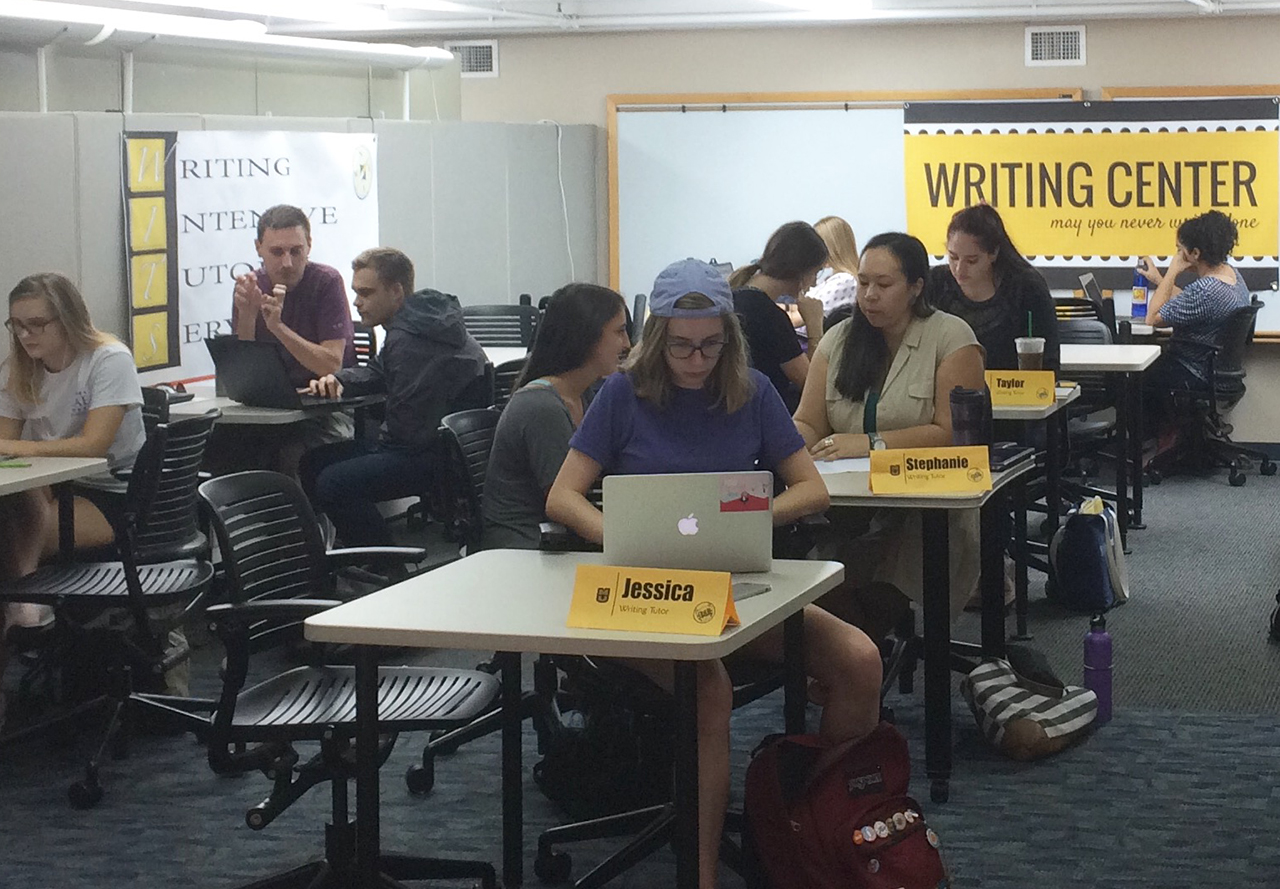Published on Sept. 19, 2017

MU’s Writing Center has a history of success. Since its establishment in 1977, the center has experienced continued growth and become more accessible to students. In fact, over the last three academic years, the Writing Center has served approximately 42,000 students and faculty.
“Last year, we saw the highest number of contacts in our 40-year history.” Rachel Harper, the Writing Center Director, says. “We thought that with the enrollment drop we would also see a drop in traffic, but the opposite is true.”
Harper partially credits the increase to accessibility. The Writing Center has expanded its locations and now has a presence in multiple residence halls, Ellis Library and Athletics, in addition to its primary location in the Student Success Center.
“I think one of the great things about the Writing Center is that we serve everyone,” Harper says. “Because we’re centrally located and centrally funded, and because we have continued to grow in both locations and types of support, we’ve managed to meet students where they are.”
Aaron Harms, who manages the Online Writery of the Writing Center, says the online component is more utilized than ever before, accounting for two-thirds of the contacts for the Writing Center. When the Online Writery was established in the 1990s, it was built for specificity, which allows tutors to help students with a particular project rather than general writing advice.
“We have a finite amount of space for face-to-face appointments, but (the Online Writery) is almost the same as a face-to-face appointment,” Harms says. “So we encourage students to submit online; that way we don’t have to turn anyone away.”
Having a well-established online writery provides greater accessibility as it is open 24-hours a day, seven days a week. It also has the capability to work with distance students.
In the 2016-2017 academic year, the Writing Center served 15,412 people, growing approximately 14-percent from 2015-2016. The Writing Center has also seen an increase of the amount of students who use its resources more than once.
Harper says that students who come in once generally continue utilizing the Writing Center as it provides tutoring for every step of the writing process, from brainstorming to a final look-through. However, the key is getting the students through the door.
“There are a lot of myths with the Writing Center,” Harper says. “We don’t simply correct or edit a student’s essay. We give substantial feedback on the writing, such as structure or use of research. Part of our tutors’ job is to ask a lot of questions, be a smart mirror and help students strategize on the options available to them as writers. ”
Becoming a Writing Center tutor is intensive. All undergraduates take—and must do well in—an honors writing intensive course on theory and practice of tutoring writing. Graduate students are hired through a rigorous application and interview process and attend a three-day training workshop prior to the start of the semester. Additional workshops are offered throughout the year for all writing tutors.
“I like that it’s one-on-one,” Tutor Kate Harlin says. “I get to work with everyone as an individual, instead of just building a paper. I love that I get to build a relationship with somebody.”
Harper and Harms want to continue to grow and adapt to meet the needs of the ever-changing student population. Their goal is summarized by the Writing Center’s slogan—“May you never write alone.”